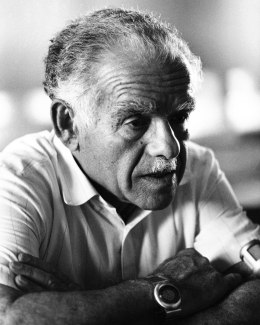
Yitzhak Shamir was risk-averse by nature. He often treated Israel as if it were a bank account and his job was to not draw down its capital. This cautious Prime Minister kept Israel out of the Gulf War in 1991 when Saddam Hussein sought to make Israel the issue. The pressures within Israel on Shamir to carry out attacks on Iraq were immense. But Shamir held firm, believing it was better not to play into Saddam’s hands by creating an Arab-Israeli conflict. That took courage.
Similarly, this cautious, seemingly reluctant leader decided to go to the Madrid Peace Conference in 1991. Instinctively, he doubted peace was possible. His Israeli critics say he had no intention of seriously negotiating, and judging by the instructions he gave his negotiators, they may have a point. But he knew he was setting something in motion. He felt there were big decisions that had to be made for Israel’s future — and he was glad they would come after him. His role was to keep Israel strong until that point, and he did.
Ross is a U.S. diplomat who served as Middle East envoy under President Clinton
